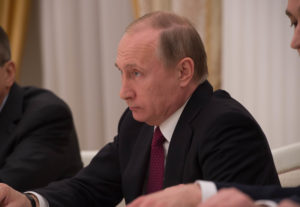
Without participation from Russia, Saudi Arabia decided to reverse course and pump oil all-out into a market where demand is collapsing. Anticipating more supply and much less demand, traders shaved 25% off of the price of oil on Monday.
Neither country’s decision makes a lot of economic sense. Collapsing prices aren’t going to result in more revenue for Russia, and while Saudi Arabia plans to increase production about 20% to help offset lower prices, it’s still a net loss for the country.
Unfortunately, it may be a while before rationality returns to OPEC. Russia’s decision wasn’t motivated by profit, but by a desire to punish the U.S.
What’s Russia beef with U.S. producers? Alexander Dynkin, president of the state-run think tank Institute of World Economy and International Relations in Moscow, said “The Kremlin has decided to sacrifice OPEC+ to stop U.S. shale producers and punish the U.S. for messing with Nord Stream 2.” Nord Stream 2 is a pipeline from Russia to Germany the U.S. has tried to stop by implementing sanctions.
If prices are sustained at these levels, Russia may succeed in putting some U.S. producers into bankruptcy, but shale isn’t likely to be permanently impaired. Saudi Arabia tried the same thing in 2014, and the outcome was a more productive U.S. shale sector that could operate at lower breakeven prices. The losers were ultimately Opec+ members who had to cut demand and deal with lower prices.
We would anticipate a similar outcome this time.



